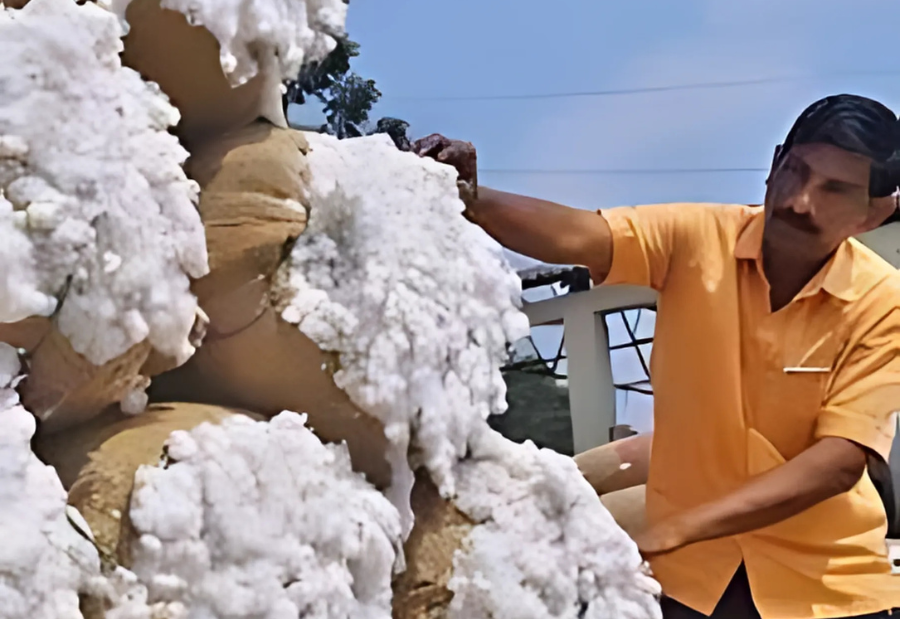India’s cotton industry, once a dominant force in the global market, now faces a significant decline, driven largely by a reluctance to embrace modern agricultural technologies. While India was once on the path to becoming the world’s top cotton exporter, the country now finds itself grappling with decreased production and increased imports, much to the benefit of other cotton-producing nations.
In the early 2000s, India’s cotton production surged, nearly tripling from 13.6 million bales in 2002-03 to almost 40 million bales in 2013-14. During this period, India became a major exporter, with exports soaring to 11.6 million bales by 2013-14. However, projections for 2024-25 suggest a sharp decline, with production expected to fall to just 29.5 million bales, while imports are expected to surpass exports.
The rise and fall of India’s cotton industry can be traced to one critical factor: technology. Over the decades, pioneering cotton breeders such as C.T. Patel and B.H. Katarki introduced groundbreaking hybrids that revolutionized cotton production. This tradition of innovation continued with the advent of genetically modified (GM) Bt cotton, which transformed India’s cotton fields. By 2013-14, around 95% of cotton farms were growing GM Bt cotton, significantly boosting yields.
However, India’s progress was halted as political resistance to genetically modified crops grew. The 2009 moratorium on Bt brinjal, followed by the halt of GM crop field trials, marked a turning point. Despite the scientific evidence supporting the safety and efficacy of GM crops, activist groups and regulatory barriers stifled technological advancements. The result? India’s cotton yields have dropped, and the country is now struggling to keep up with emerging pests like the pink bollworm.
The failure to approve new GM technologies has had tangible economic consequences. Cotton imports have surged, while exports have plummeted. India’s agricultural stagnation benefits countries like the US and Brazil, who dominate the cotton market and may soon pressure India to remove its import duties.
As India’s farmers are left without access to the technologies they need, the question remains: Will the activists who blocked GM crop trials continue to impede the entry of GM soyameal and corn through major ports like Nhava Sheva or Visakhapatnam?
Also read: Viksit Workforce for a Viksit Bharat
Do Follow: The Mainstream formerly known as CIO News LinkedIn Account | The Mainstream formerly known as CIO News Facebook | The Mainstream formerly known as CIO News Youtube | The Mainstream formerly known as CIO News Twitter
About us:
The Mainstream formerly known as CIO News is a premier platform dedicated to delivering latest news, updates, and insights from the tech industry. With its strong foundation of intellectual property and thought leadership, the platform is well-positioned to stay ahead of the curve and lead conversations about how technology shapes our world. From its early days as CIO News to its rebranding as The Mainstream on November 28, 2024, it has been expanding its global reach, targeting key markets in the Middle East & Africa, ASEAN, the USA, and the UK. The Mainstream is a vision to put technology at the center of every conversation, inspiring professionals and organizations to embrace the future of tech.




